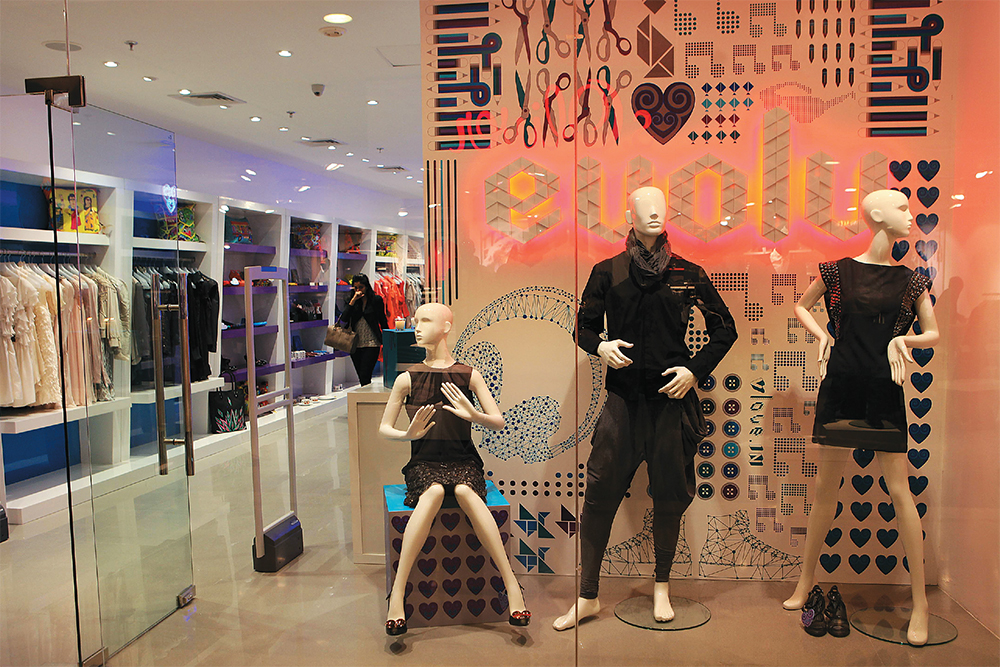When the history of multi-designer retail store Evoluzione is written, 2012 could go down as one of its milestone years. For the first time, at India Couture Week, Evoluzione designers Anamika Khanna and Gaurav Gupta debuted their new collections at a Paris-style offsite at New Delhi’s Kila. While it wasn’t as pish-posh and toffee-nosed as portended, it brought home the seriousness with which Evoluzione is regarded by designers — and now investors. Word leaked that L Capital, the PE arm of the $29 billion LVMH conglomerate with Fendi and Dior under its umbrella, beside, of course, Louis Vuitton, was considering a stake in Chennai-based Evoluzione.
L Capital had already bought into Fabindia, which lent muscle to speculation regarding its interest in the Indian fashion world — including designers Rohit Bal and Sabyasachi Mukherjee — with a kitty of Rs.200 crore. But Evoluzione promoter Atul Malhotra had on-record and off-record versions, neither of which confirmed the conjecturing. He seemed more keen on sharing his passion for fashion and its retail experience, which played out in Chennai and Bengaluru before being replicated in Delhi.
For those who got in late, the Malhotras have been in the garment manufacturing business for over 20 years. But when they decided to test the waters with Rohit Gandhi and Rahul Gupta, or Rajesh Pratap, in Chennai, they were testing the heritage legacy of fashion brands. Surprisingly, the multi-designer retail format worked, and Atul and his wife Tina, who does the sourcing for the company, soon found themselves moving to a bigger store. Chennai was loosening its purse strings, but “its people have taste”. Bengaluru followed next. Evoluzione has since launched another retail concept, Evolv, where experienced and budding designers, and new product lines that involve accessories and home furnishings, besides fashion, have evolved as a collaborative experience. Importantly, the duo decided to invest in “full lines” presented at fashion weeks, leveraging seed capital to free designers from having to worry about managing funds or even manufacturing.
The Evoluzione and Evolv stores are expanding because the company believes its supply chain and manufacturing experience “will change the way designers work”, with its designs doing a turnaround every 45-60 days. The company has a wish-list of six designers on its rolls, of which Khanna and Gupta are already a part.
If, indeed, L Capital funds the exercise, it means the designers will be free to focus on designing. How will that help? First, it means stronger designs; second, it will rationalise pricing (because of sourcing and manufacturing efficiencies); and, third, it will allow frequent churn in designs (which seems to be the whole point of fashion anyway).
Evoluzione itself is growing, with plans for 12-15 Evoluzione and 50 Evolv stores in the next five years — some of which will be in key Western and Southeast Asian cities. There’s huge support for Indian design, “but we want to take it to the luxury and aspirational level” by tweaking the retail format so that designers can work or create different lines for the store — just as Giorgio Armani once did for fashion house Cerruti. At the end, the idea is to make the brand formats so universal that the buyer is able to pick up an entire couture range, or merely a belt, from the stores, the experience alone guaranteed to bring the footfalls back.
With Manmohan Singh’s government opening foreign direct investment in retail, it could lead to a trickle of foreign funds in the fashion industry, but L Capital or not, Malhotra is keen to be part of India’s evolving fashion story. Which means the likes of you and I will likely be consuming fashion from store formats pioneered by Evoluzione and Evolv. Get ready to be part of fashion history.











